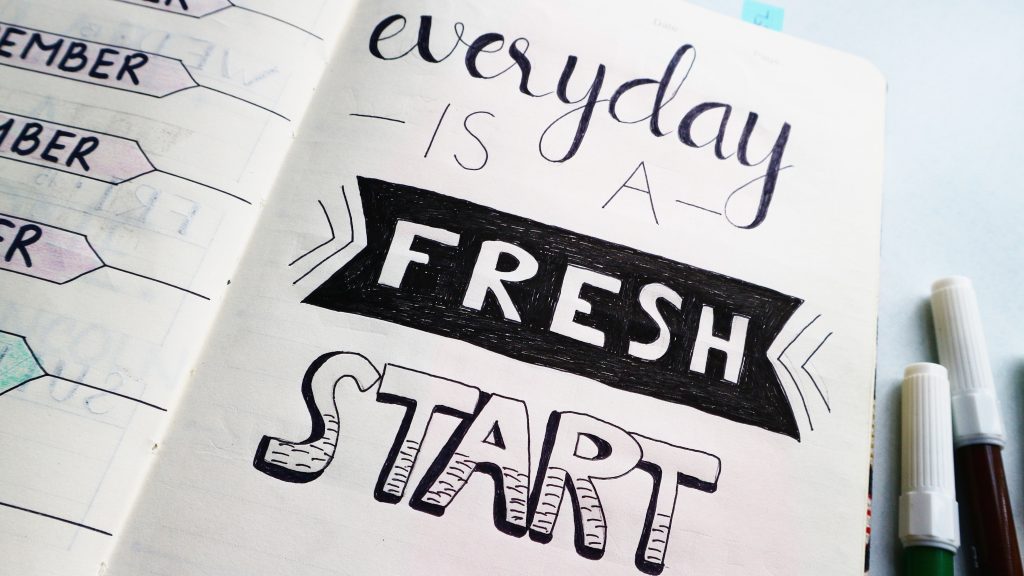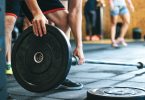Introduction:
In the quest for fitness progress, tracking and recording workout routines play a crucial role. This article “Master Your Fitness Progress: The Importance of Recording Your Workout Routines” dives into the significance of documenting workouts and highlights the multitude of benefits it brings to individuals striving for their fitness goals. From setting clear objectives and monitoring performance to enhancing training efficiency and staying accountable, recording workouts serves as a powerful tool for optimizing progress. By exploring various strategies, utilizing technology, and embracing a holistic approach, individuals can master their fitness journey and achieve long-term success. Join us as we uncover the importance of recording workout routines and unlock the potential for greater fitness gains.
- Highlight the importance of tracking and recording workout routines for fitness enthusiasts.
- Emphasize the benefits of monitoring progress, setting goals, and optimizing performance.
- Mention the increasing popularity of fitness tracking apps and devices.
-
Set Clear Fitness Goals:
- Explain the significance of setting specific, measurable, attainable, relevant, and time-bound (SMART) fitness goals.
- Describe how recording workout routines helps in tracking progress toward these goals.
- Encourage readers to define their objectives and create a plan to achieve them.
-
Track Performance and Progress:
- Discuss the value of monitoring key performance indicators (KPIs), such as weight lifted, distance run, or calories burned.
- Highlight the benefits of tracking progress over time, including the motivation it provides.
- Introduce the concept of progressive overload and how recording workouts helps in gradually increasing intensity.
-
Enhance Training Efficiency:
- Explain how recording workout routines allows for better planning and organization of training sessions.
- Discuss the importance of tracking rest periods, repetitions, and sets to ensure optimal training volume.
- Mention the ability to identify weaknesses and adjust training programs accordingly.
-
Stay Accountable:
- Describe how tracking workouts helps individuals stay accountable to themselves and their fitness goals.
- Discuss the psychological benefits of visualizing progress and celebrating achievements.
- Suggest sharing progress with a workout buddy, trainer, or online community for added support.
-
Prevent Plateaus and Adjustments:
- Explain how tracking workout routines helps identify patterns and trends.
- Emphasize the importance of recognizing plateaus and making necessary adjustments to overcome them.
- Discuss the role of data analysis in modifying workout programs for continued progress.
-
Analyze and Optimize Performance:
- Highlight the availability of various fitness tracking apps and devices for recording workout data.
- Discuss the benefits of reviewing past workout data to analyze strengths, weaknesses, and areas for improvement.
- Encourage readers to make data-driven decisions to optimize their fitness routines.
-
Track Other Health Factors:
- Mention the ability to track additional health factors like sleep, nutrition, and heart rate for a comprehensive view of overall fitness.
- Discuss the correlation between these factors and workout performance.
- Recommend integrated platforms or apps that can consolidate fitness and health data.

Photo by Julia M Cameron: https://www.pexels.com/photo/person-writing-on-notebook-4144923/
-
Celebrate Milestones and Achievements:
- Encourage readers to celebrate milestones and achievements along their fitness journey.
- Suggest setting mini-goals and rewards to stay motivated.
- Mention the importance of sharing accomplishments with the fitness community for support and inspiration.
-
Utilize Technology and Apps:
- Discuss the growing availability of fitness tracking apps and wearable devices that make recording workouts easier.
- Highlight features such as automatic exercise detection, built-in timers, and personalized training plans.
- Provide recommendations for popular fitness tracking apps or devices suitable for different fitness goals.
-
Maintain Consistency and Progression:
- Emphasize the importance of consistency in recording workouts to accurately track progress.
- Discuss the significance of gradual progression in terms of increasing weights, intensity, or duration.
- Encourage readers to maintain a regular recording habit to ensure continuous improvement.
- Explain the value of tracking body measurements like weight, body fat percentage, or waist circumference.
- Discuss how these measurements provide a more comprehensive view of physical changes beyond just performance improvements.
- Encourage readers to periodically record and compare body measurements alongside their workout routines.
-
Experiment with Different Workout Routines:
- Highlight the advantage of recording workouts when experimenting with new training methods or routines.
- Discuss how tracking allows individuals to assess the effectiveness of different approaches on their performance and progress.
- Encourage readers to step out of their comfort zone and try various workout styles to find what works best for them.
-
Take Note of Nutrition and Recovery:
- Discuss the importance of recording dietary intake and recovery practices alongside workout routines.
- Explain how nutrition and rest contribute to overall fitness progress and performance.
- Recommend tracking factors like daily calorie intake, macronutrient distribution, and sleep quality for a holistic approach.
-
Reflect and Learn from Setbacks:
- Explain that recording workout routines also helps individuals learn from setbacks and challenges.
- Discuss the role of self-reflection and analysis when progress seems to stall or regress.
- Encourage readers to review their recorded data to identify potential reasons for setbacks and make necessary adjustments.

Photo by Ayşenaz Bilgin: https://www.pexels.com/photo/a-person-writing-in-a-notebook-16035592/
-
Seek Professional Guidance:
- Advise readers to consult with fitness professionals, such as personal trainers or coaches, for expert guidance.
- Highlight how recording workouts can facilitate productive discussions and feedback sessions with trainers.
- Mention that professionals can provide tailored advice based on the recorded data to optimize training plans.
-
Protect and Secure Your Data:
- Remind readers to prioritize the security and privacy of their recorded workout data.
- Provide tips on using trusted apps, enabling two-factor authentication, and regularly backing up data.
- Suggest researching and choosing reputable platforms or apps that have strong privacy policies.
-
Leverage Social Media for Accountability and Support:
- Discuss the benefits of using social media platforms to document workout progress and connect with like-minded individuals.
- Mention fitness communities or hashtags where individuals can share their accomplishments, challenges, and seek support.
- Encourage readers to join online fitness communities or follow fitness influencers for inspiration and motivation.
-
Use Visual Aids:
- Explain the value of visual aids such as progress photos, charts, or graphs to track physical transformations.
- Highlight how visual representations can provide a clear picture of progress and serve as a source of motivation.
- Recommend apps or tools that allow users to create visual progress trackers or before-and-after collages.
-
Incorporate Variety and Cross-Training:
- Emphasize the importance of incorporating variety and cross-training into workout routines.
- Discuss how recording different types of workouts, such as strength training, cardio, and flexibility exercises, helps ensure a well-rounded fitness program.
- Provide examples of cross-training activities, such as swimming, cycling, or yoga, and how to track them effectively.
-
Celebrate Non-Scale Victories:
- Encourage readers to celebrate non-scale victories, such as increased energy levels, improved mood, or better sleep quality.
- Highlight the importance of recognizing and appreciating these non-quantifiable benefits of regular exercise.
- Suggest journaling or adding notes to workout recordings to capture these positive changes.

Image by Antoni Shkraba: https://www.pexels.com/photo/photo-of-woman-writing-on-tablet-computer-while-using-laptop-4348401/
-
Periodize and Plan Training Cycles:
- Discuss the concept of periodization, which involves dividing training into cycles with varying intensities and goals.
- Explain how recording workouts helps individuals plan and adjust their training cycles effectively.
- Introduce the idea of macrocycles, mesocycles, and microcycles, and how recording routines aids in tracking progress within these cycles.
-
Explore Data Visualization Tools:
- Mention the availability of data visualization tools that can transform recorded workout data into informative charts or graphs.
- Discuss how these tools can provide a visual representation of progress, trends, and areas for improvement.
- Recommend popular data visualization apps or software for fitness tracking and analysis.
-
Consider Professional Fitness Assessments:
- Highlight the benefits of periodic fitness assessments conducted by professionals, such as body composition analysis or performance testing.
- Explain how recording workout routines can provide valuable data for these assessments and help individuals gauge their fitness level accurately.
- Encourage readers to seek out certified fitness professionals for comprehensive assessments and guidance.
-
Make Recording Workouts a Habit:
- Stress the importance of consistency in recording workouts to establish a habit.
- Provide tips for making it a routine, such as setting reminders, using dedicated workout journals, or utilizing smartphone apps.
- Explain that the more consistent individuals are in recording their routines, the easier it becomes to track progress effectively
-
Incorporate Periodic Deloads:
- Explain the concept of deloading, which involves reducing training volume or intensity periodically to allow for recovery and prevent overtraining.
- Discuss how recording workouts helps individuals identify when it’s time for a deload based on their performance and fatigue levels.
- Emphasize the importance of deloading to prevent injuries and optimize long-term progress.
-
Adjust for Lifestyle and Environmental Factors:
- Highlight the significance of considering lifestyle and environmental factors when recording workout routines.
- Discuss how factors such as travel, work schedule, or seasonal changes can impact training consistency and performance.
- Encourage readers to adapt their workout plans and track adjustments to accommodate these factors.
-
Monitor Exercise Technique and Form:
- Emphasize the importance of maintaining proper exercise technique and form for safety and optimal results.
- Explain how recording workouts allows individuals to review their form and identify any potential issues or areas for improvement.
- Encourage readers to focus on maintaining good form and use recordings as a tool for self-correction.
-
Incorporate Mindfulness and Mental Health:
- Discuss the connection between physical fitness and mental well-being.
- Explain how recording workouts can serve as a tool for mindfulness, helping individuals stay present and focused during exercise.
- Highlight the importance of recognizing and tracking the positive impact of workouts on mental health and stress reduction.
-
Share Workout Routines and Tips:
- Encourage readers to share their workout routines, progress, and tips with others.
- Discuss the benefits of sharing knowledge and experiences within the fitness community, fostering collaboration and support.
- Mention social media platforms, forums, or fitness-related websites where readers can contribute and engage with others.
-
Continuously Educate Yourself:
- Emphasize the importance of continuous learning in the fitness journey.
- Encourage readers to explore reputable fitness resources, books, podcasts, or workshops to expand their knowledge.
- Explain how recording workouts can inspire curiosity and motivate individuals to seek out new training methods or research-backed information.

Photo by Bich Tran: https://www.pexels.com/photo/inspirational-quotes-on-a-planner-636243/
Conclusion:
Recording and tracking workout routines is a crucial aspect of mastering your fitness progress. By setting clear goals, monitoring performance and progress, enhancing training efficiency, and staying accountable, individuals can optimize their fitness journey. The benefits of recording workouts extend beyond just physical gains, as it fosters motivation, prevents plateaus, and allows for adjustments based on data analysis. Additionally, integrating technology, leveraging social support, and celebrating milestones further enhance the recording process.
Furthermore, incorporating visual aids, tracking body measurements, and considering nutrition and recovery factors provide a holistic view of progress. Exploring different workout routines, periodizing training cycles, and utilizing data visualization tools offer opportunities for growth and optimization. Seeking professional guidance, protecting data privacy, and making recording workouts a habit are vital elements for long-term success.
Ultimately, the act of recording workouts empowers individuals to take control of their fitness journey, make informed decisions, and celebrate achievements. It serves as a constant reminder of progress, motivates during setbacks, and provides valuable insights for continuous improvement. So, start tracking your workouts today, utilize available resources and technology, and join supportive communities to unlock your full potential on the path to a healthier and fitter you. Remember, mastering your fitness progress begins with the simple step of recording your workout routines.
Keywords:
Master Your Fitness Progress, Importance, Recording, Workout Routines, Tracking, Progress, Goals, Performance, Optimization, Training Efficiency, Accountability, Prevent Plateaus, Adjustments, Analyze, Optimize, Technology, Apps, Consistency, Progression, Body Measurements, Nutrition, Recovery, Setbacks, Professional Guidance, Social Media, Visual Aids, Variety, Cross-Training, Non-Scale Victories, Periodization, Data Visualization Tools, Lifestyle Factors, Exercise Technique, Mindfulness, Mental Health, Sharing, Continuous Learning.
For more hacks Click Here.








